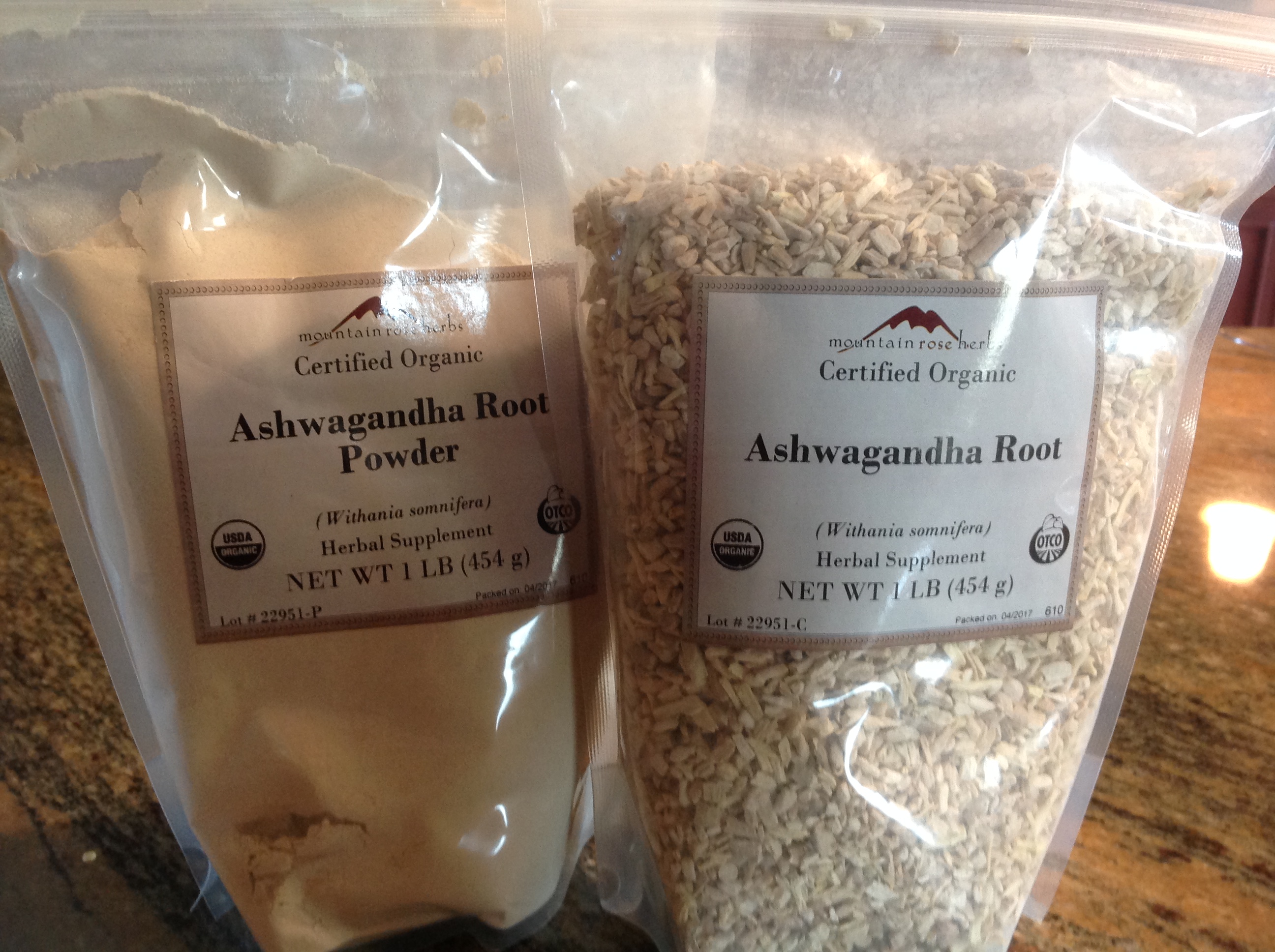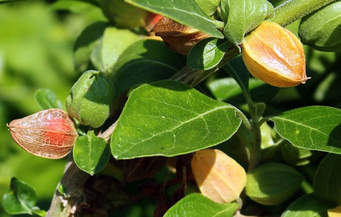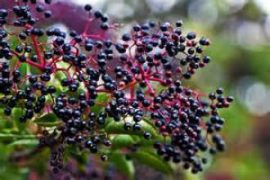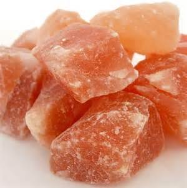Ashwagandha is also known as Indian Winter cherry or Indian ginseng. It is a very important herb in Ayurveda, the traditional form of medicine in India. Ashwagandha is commonly used in a rasayana, a group of herbal remedies that is used to rejuvenate and replenish the body. It is administered in a tea, tincture, paste, powder or pill.
Health benefits
Ashwagandha is commonly used to increase energy, relieve stress and improve brain function. This Ayurvedic herb has a surprising number of health benefits.
Stress reducer-This study shows the safety and efficiency of ashwagandha in reducing stress.
Fight inflammation– The high amount of withanolides in ashwagandha fights inflammation and tumor growth.
Hormonal support-The women in this study noted a significant improvement in their menopausal symptoms after supplementing with ashwagandha.
Lowers blood sugar-Numerous health studies have shown the ability of ashwagandha to lower blood sugar levels in healthy people and diabetics. (1,2,3,4)
Memory support-Supplementing with ashwagandha may improve brain function, memory and the ability to perform tasks with greater efficiency.
Adaptogen-A powerful adaptogen, this herb enhances the body’s ability to handle stress.
Immune support-Improves the body’s defense against disease by improving the cell-mediated immunity
Antioxidant-Protects against cellular damage caused by free radicals.
Neurodegenerative diseases-Ashwagandha has proven beneficial in individuals with Alzheimer’s, Huntington’s, Parkinson’s and other neurodegenerative diseases.
Lung cancer– This study showed ashwagandha to be highly effective against a variety of tumor cells both in vitro and in vivo.
Cancer chemoprevention-A term coined by Dr. Sporn in the late seventies, implies use of natural or synthetic chemicals to block, delay or reverse carcinogenesis. An interesting feature of the diverse phytochemicals in ashwagandha is that they target mitochondria to provoke cancer cell-selective death program.
Anti-cancer properties– The anticancer value of this herb was realized over four decades ago after isolation of a crystalline steroidal compound (withaferin A) from the leaves of this shrub.

Using ashwagandha
Ashwagandha can be found online, in health stores and herb shops. It is available in powdered form, dried sliced root, and in supplement form. Always look for certified organic herbs.
Stir powder into honey, and then add that honey to tea or coffee.
Combine with ginger, turmeric and honey and use it for chai.
Mix ashwagandha powder and a small amount of honey and roll into balls. Take as you would a throat lozenge.
Add 1 tsp. to your smoothie.
Add a slice of ashwagandha root to homemade hot soup. Simply remove before eating
Add a slice or two to your homemade bone broth.

2 Recipes:
Ashwagandha Tea with Milk & Honey
½ C. Organic milk
1 tsp. Ashwagandha powder
1 tsp. Honey
½ C. Water
Directions
- Bring to a boil over low heat: milk, water, ashwagandha and honey.
- Reduce to ½ cup.
- Add cardamom or cinnamon and drink lukewarm.
Hot Cacao & Ashwagandha
2 tablespoons Cacao powder
1 teaspoon Ashwagandha root powder
1/4 tsp. Cinnamon or cardamom
8 oz. Coconut milk (or other milk of choice)
Honey or maple syrup to taste
Directions
- Pour the milk into a saucepan and whisk in the cocoa powder, ashwagandha powder, cinnamon or cardamom.
- Heat gently over low heat for a few minutes, stirring occasionally. Pour into a mug and sweeten to taste.








